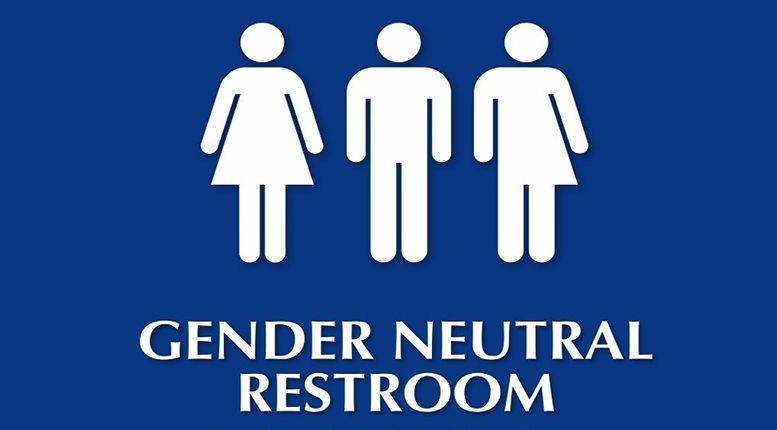54% support “bathroom bills” and 6 in 10 agree a gender-neutral bathroom option should be required in public buildings
NEW YORK, N.Y.—With 40 state legislatures convened thus far in 2017, analysts report there are more than 30 measures introduced in 11 states that are intended to weaken or remove civil rights safeguards for lesbian, gay, bisexual and transgender (LGBT) Americans.
In this polarized political climate, a majority of Americans state they oppose measures that erode civil rights for LGBT people:
- Two-thirds (66%) of adults say they oppose laws allowing businesses to refuse service to LGBT persons because of their religious objections (and a similar proportion (68%) stated their opposition in a May 2016 Harris Poll.)
- 62% of adults oppose state laws that repeal or overturn local or city LGBT anti-discrimination laws and ban cities from passing similar protections in the future (which has ticked up slightly from the 60% of adults who thought so when asked in May 2016.)
Despite these majority views, Americans still face a slightly wider division on legislation to restrict access to bathrooms for transgender Americans by requiring individuals to use the bathroom that corresponds to their sex at birth, rather than their true gender identity. When asked about so-called “bathroom bills” in May 2016, 49% of all adults expressed support—however in January 2017, that support has reached 54% of Americans, with 46% of adults opposing these bills.
Nonetheless, over 6 in 10 Americans (63%) agree that all public buildings should be required to offer a single-user or gender non-specific bathroom. Americans slightly favor the federal government (39%) over state governments (36%) in deciding bathroom access, while 22% are not sure at all.
These are some of the results of The Harris Poll® of 2,192 U.S. adults ages 18+ surveyed online between January 9 and 11, 2017. Complete results of this study can be found here.
Americans Weigh Effective Responses
When Americans are asked how effective various tactics might be in overturning or preventing passage of these kinds of laws that restrict LGBT rights, several options are believed to be very or somewhat effective:
- Nearly 6 out of 10 Americans (59%) believe Federal law suits against states for civil rights violations would be effective;
- A majority of Americans (56%) say that corporate decisions to move their headquarters or offices out of state are an effective response;
- 55% agree that sporting associations that disallow states with discriminatory laws from hosting major games is effective;
- Half (50%) of Americans say that film and television productions that pull their current or future projects out of states with these laws will make a difference, and 47% say that entertainers who cancel their performances also have impact;
- At the end of the scale, just 41% believe state governments that ban their employees from non-essential travel to discriminatory states will make a difference, and only about 1 in 3 (32%) find social media hashtags with messages such as #NoHateInMyState or #WeAreNotThis have influence.
“In state after state, we see echoes of a national struggle that roiled North Carolina last year,” said Bob Witeck, business strategist and President of Witeck Communications. “Facing similar issues this year, Texas business leaders now estimate a loss of $8.5 billion in GDP as well as 185,000 jobs lost if discriminatory legislation is enacted. These findings make clear that Americans are especially mindful of the economic and social consequences of these decisions.”
To see other recent Harris Polls, please visit our website, TheHarrisPoll.com.
Want Harris Polls delivered direct to your inbox? Click here!
Methodology
This Harris Poll was conducted online within the United States between January 9 and 11, 2017 among 2,192 adults (aged 18 and over). Figures for age, sex, race/ethnicity, education, region and household income were weighted where necessary to bring them into line with their actual proportions in the population. Propensity score weighting was also used to adjust for respondents’ propensity to be online.
All sample surveys and polls, whether or not they use probability sampling, are subject to multiple sources of error which are most often not possible to quantify or estimate, including sampling error, coverage error, error associated with nonresponse, error associated with question wording and response options, and post-survey weighting and adjustments. Therefore, The Harris Poll avoids the words “margin of error” as they are misleading. All that can be calculated are different possible sampling errors with different probabilities for pure, unweighted, random samples with 100% response rates. These are only theoretical because no published polls come close to this ideal.
Respondents for this survey were selected from among those who have agreed to participate in Harris Poll surveys. The data have been weighted to reflect the composition of the adult population. Because the sample is based on those who agreed to participate in our panel, no estimates of theoretical sampling error can be calculated.
About The Harris Poll®
Begun in 1963, The Harris Poll is one of the longest running surveys measuring public opinion in the U.S. and is highly regarded throughout the world. The nationally representative polls, conducted primarily online, measure the knowledge, opinions, behaviors and motivations of the general public. New and trended polls on a wide variety of subjects including politics, the economy, healthcare, foreign affairs, science and technology, sports and entertainment, and lifestyles are published weekly. For more information, or to see other recent polls, please visit our new website, TheHarrisPoll.com.
[From a News Release]







